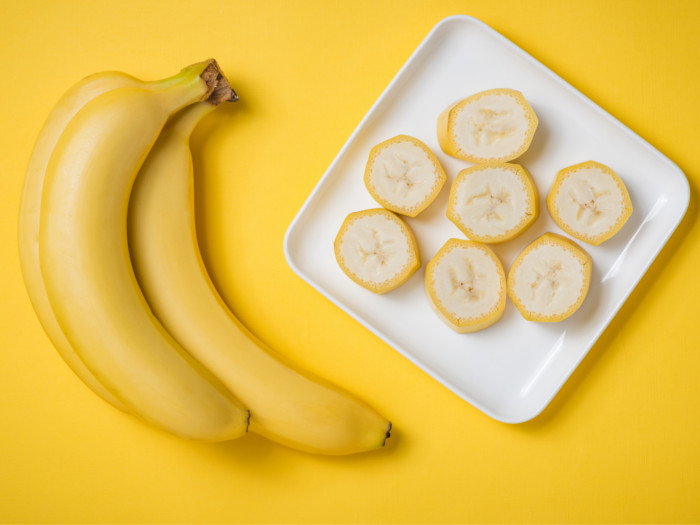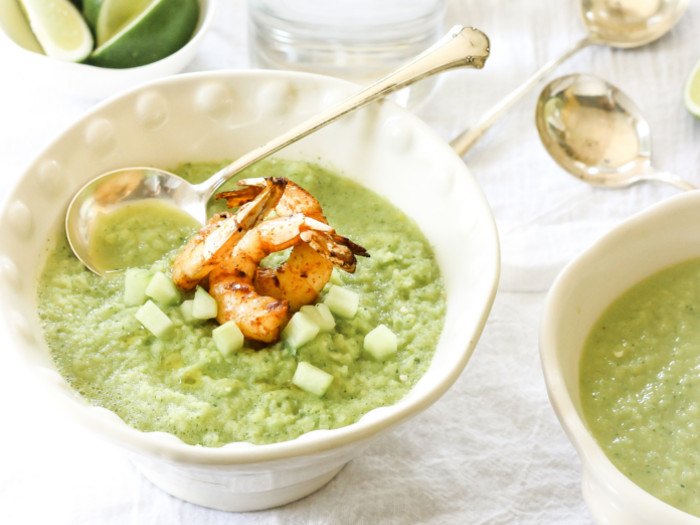Pants that won’t button. Heavy, tired limbs. Sore, swollen, achy breasts. Who would have dreamed something as simple as water could cause so much suffering?
Many women retain water prior to their menstrual period. Men, likewise, suffer water retention at times due to hormones or illness and can develop edema. While severe cases of water retention may require medical intervention, most folks feeling a bit bloated can find relief with the aid of these natural remedies.
How to Reduce Water Retention?
Easy ways to reduce water retention are drinking more water, avoiding sodium, eating bananas, practicing sweat-inducting exercises, including parsley and drinking cranberry juice. Try them!
Drink More Water
What? Sounds counterintuitive, doesn’t it? However, drinking more water can help bust the bloat. Drinking water flushes excess sodium and other minerals from the body. It triggers the cells to release water they may have otherwise maintained to prevent imbalances and dehydration.

A wide variety of health benefits are associated with the curvy yellow fruit. Photo Credit: Shutterstock
Cut Down on Sodium
Yes, that bag of chips looks tempting when PMS strikes, but scarfing down all of them can lead to some serious water retention. Sodium triggers cells to retain water big time.
While junk food is obviously out, be wary of hidden sodium. Many diet soft drinks contain high sodium levels, so stick with water or herbal teas. Bust that craving for crunch by tossing cucumber with vinegar, olive oil, and Italian herbs. People can also make like Bugs Bunny and nosh on some baby carrots with a low-sodium dip. [1]
Go Bananas
Potassium also signals the body to shed excess water, so make like a monkey and take a banana along as a workday snack. Other foods high in potassium include spinach, yogurt, avocados, and Swiss chard. A nice spinach salad with a side of Greek yogurt can help melt the bulge. [2]
Potatoes also contain high levels of potassium, but skip the salty french fries! Try making a healthy baked potato dinner instead.
Sweat It Out
Exercise releases water, so resist the temptation to skip the gym. Working out while retaining water can feel more difficult than usual, but that’s no reason to throw in the towel entirely. Switch to gentle exercises such as walking on a treadmill, riding the elliptical machine at a moderate pace or taking a Pi-Yo class.
Take Those Vitamins
Some vitamins and minerals help reduce excess bloating. In particular, vitamin B-6 and magnesium help flush out excess water and sodium. Most fish contain considerable amounts of B-6, so sear a nice salmon steak or hit the friday fish fry.
Exercise a bit of caution when supplementing with magnesium. While beneficial, the mineral can flush out a bit too much water by causing diarrhea. Consider a powdered magnesium supplement and start with a quarter of the recommended dose. Build up gradually to avoid running to the loo all day.
Eat Unsalted Nuts
Some canned nuts contain a lot of sodium and should be avoided while retaining water. However, unsalted nuts help bust the bloat by bathing the body’s cells in omega-3s. The natural moisture helps the body release excess water.
As a bonus, nuts may help clear premenstrual brain fog. Omega-3s facilitate neural transmission, the way the brain’s neurons talk to each other to create coherent thoughts. Consuming more nuts may even help in staving off dementia, although more research is necessary to claim so definitively.
Garnish with Parsley
Another herb that battles the monthly bulge is the humble parsley plant many people grow on windowsills or in gardens. Traditionally used as a garnish, parsley also plays the leading role in pesto. Mix up some parsley pesto to top pizza, use as a pasta topping or even add a delicious herbal flavor to lunchtime sandwiches.

Drink Cranberry Juice
Often used by those suffering from bladder woes, cranberry also serves as a mild diuretic. Many commercial cranberry juices contain a good deal of sugar, so those watching their intake might prefer to take cranberry extract as a supplement instead of guzzling it down. Individuals suffering from kidney disease or stones should consult their physician before supplementing with cranberry, as it may exacerbate the condition.
Try Horsetail
A popular ornamental grass used to create natural privacy barriers, horsetail can also assist in flushing out excess water. Many herbalists have recommended horsetail for the treatment of edema.
While most people tolerate horsetail supplements and teas well, pregnant and breastfeeding women, those with diabetes and people suffering from alcoholism should exercise caution with the herb. Horsetail reduces thiamine levels, as does alcohol, and the combination can result in a deficiency. Some evidence suggests horsetail may impact blood sugar levels in diabetics and not enough evidence exists to prove the herb safe for developing babies. [3]
Pick Dandelions
Considered a pest by many with lawns, herbalists nevertheless adore dandelion for its health benefits. Dandelion tea makes an excellent diuretic and may lower blood pressure in those suffering from hypertension.
Before picking dandelions, make sure the harvest area has not been treated with lawn chemicals. Dandelion makes a rather bitter tea, but it can be sweetened naturally with honey or coconut milk. Dandelion leaves contain more protein than spinach and can be consumed raw, so add an interesting zing to salads by tossing in a few leaves.
Bust the Bloat for Good
Just like some people respond better to certain medications, the effectiveness of natural remedies varies from person to person based on their unique physiology. Talk to a doctor and experiment with different variations of these treatments to find which works best. We hope you can eventually bid goodbye to the bloat!
